Blog Posts Tagged Acoustics Module
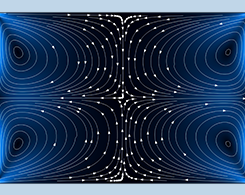
Efficiently Analyze Acoustic Streaming with Multiphysics Modeling
Acoustic streaming is when sound waves are used to generate steady fluid motion. You can use multiphysics modeling for an efficiency way to analyze this phenomenon.
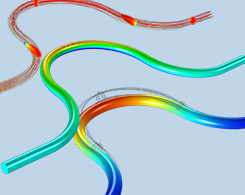
Modeling Aeroacoustics with the Linearized Navier-Stokes Equations
Get a comprehensive introduction to aeroacoustics modeling, as well as the linearized Navier–Stokes equations and how to implement them in COMSOL Multiphysics®.
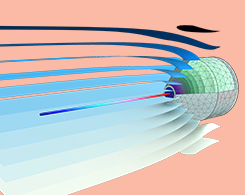
Analyzing a Probe Tube Microphone Design with Acoustics Simulation
Probe tube microphones are an important component in hearing aids. Learn about how you can use acoustics modeling to analyze the design and predict the performance of these devices.

How to Model Gearbox Vibration and Noise in COMSOL Multiphysics®
Compute the NVH, an important design consideration for automobiles, industrial machinery, and more, in a gearbox design using multibody analysis. Part 5 of a series on gear modeling.
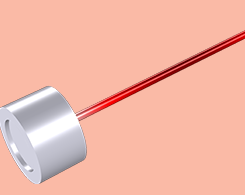
Analyzing Hearing Aid Receivers with Lumped-Parameter Modeling
Modeling complete hearing aid systems is extremely computationally expensive. Enter lumped-parameter modeling, which enables you to couple a system component to a test setup for validation.
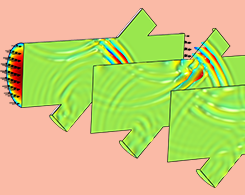
Using the Discontinuous Galerkin Method to Model Linear Ultrasound
You can easily model acoustically large problems, like linear ultrasound, with a predefined physics interface that uses a memory-efficient approach called the discontinuous Galerkin method.

Keynote Video: Locating Leaks in Pipe Networks with a Simulation App
Sebastien Perrier of Echologics discusses a simulation application used to locate leaks in underground pipe networks in his keynote presentation at the COMSOL Conference 2016 Boston.

How to Model an Anechoic Coating
Modeling an anechoic coating involves finding the smallest unit cell, truncating the geometry, and analyzing the wave diffration. The COMSOL® software includes predefined interfaces to do so.
